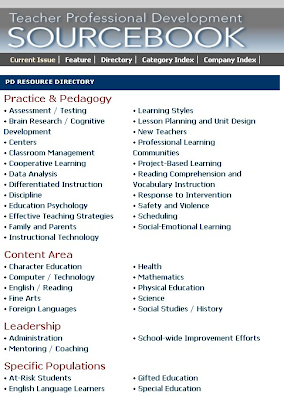
Nat Geo's Traveler's Guide to the Planets

CSI: The Experience Web Adventures

I Heart EdTech Blog Swap - my post

Students Weigh In On Characteristics of Effective Teachers
I Heart EdTech Blog Swap
Ok, so it is a line from the 1970’s Rock Opera by Andrew Lloyd Webber. Yep…that dates me! As I was deciding on my topic, the terms: 21st Century Education, 21st Century Schools, 21st Century Learner, etc began to bounce around my head, as these are buzz words which are circulating in our district.
So what about the 21st Century Learner? Schools? Education? Classroom? What’s the buzz?
The technological revolution is upon us and has opened the door to a wealth of information which has the capabilities to enhance the educational structure we offer to our students. The need to change both the role of the educator and meet the demands of the future is imperative. The majority of educators are modifying their teaching approach by facilitating learning, instead of simply dispensing knowledge.
With this said, I believe, Tony Wagner’s “Seven Survival Skills for Careers, College and Citizenship for the 21st Century”, exemplifies exactly what is necessary for the coming century.
· Critical Thinking and Problem Solving
o Buzz Words: Reason, analyze, make judgments, solve, make decisions
· Collaboration across Networks and Leading by Influence
o Buzz Words: Engage, part of a team, work with others, contribute, collaborate
· Agility and Adaptability
o Buzz Words: Flexibility, accept feedback effectively – positive or negative, compromise, change
· Initiative and Entrepreneurialism
o Buzz Words: Self-directed learner, commitment, time management, lifelong learner
· Effective Oral and Written Communication
o Buzz Words: Articulate clearly/effectively, listen, utilize various/numerous medias and technologies, diversity
· Accessing and Analyzing Information
o Buzz Words: Critical thinking, evaluate, validity of information, process
· Curiosity and Imagination
o Buzz Words: The whys, utilizing various perspectives, generating new ideas
The role of technology in the 21st century is both indispensable and crucial. It offers a vast array of learning opportunities to both the educator and student. As educators, it is essential for us to evolve with this generation and with the evolution of technology into our daily lives. Two great videos to view (if you have not already) are:
· A Vision of K-12 Student Today: This project was created to inspire teachers to use technology in engaging ways to help students develop higher level thinking skills. Equally important, it serves to motivate district level leaders to provide teachers with the tools and training to do so. http://www.youtube.com/watch?v=_A-ZVCjfWf8&feature=related
· Learning to Change Changing to Learn: Learning to Change Changing to Learn Advancing K-12 Technology Leadership, Consortium for School Networking (COSN) Video. http://www.youtube.com/watch?v=tahTKdEUAPk&NR=1
To read more about the 21st century learner, please visit the following site - edorigami. http://edorigami.wikispaces.com/21st+Century+Learners. Andrew Churches has created a very informative and insightful wiki about the 21 century learner.
Peace,
K. L. Evans
http://techie-bytes.blogspot.com/
Web 2.0 List Of Web 2.0 Application Links

DocsPal - Free online file Converter and Viewer

Board800 - web based Interactive Whiteboard

Science Books Online

Teaching with Technology

101+ Web Resources for Students

Professional Development Resource

Aviary Falcon - online image markup

Own a smartphone? Here's were you can find some great info and help.

Microsoft Research Worldwide Telescope

50 Free Collaboration Tools That Are Awesome for Education

Study Tips and Notetaking Resources
Great resource for students on how to develop effective study skills for high school and college success. Hosted by Brigham Young University. |
This site is designed to be a self-help tool to assist students in making the most of their high school years. The collection of pages in this site will help you assess your current skills, acquire new ones, and apply what you learn to study more effectively, in less time, for greater understanding and better grades. Use the links in the menu bar to work through the site from beginning to end, or click on a link below to focus on a specific skill area. |
This is a page on Sweet Briar College, VA, Academic Resource Center. It is in outline form, and is a very good resource to use for a quick review of note taking skills. It is simple, easy to read, and easy to implement. It gives basic guidelines, how to abbreviate, and how to set up your notes. |
This is on Dartmouth University’s web site. It has a lot of good information on note taking, and includes a guide to using the Cornell Note Taking System. |
This is from the University of Exeter in the UK. I really like this site because it not only gives a short tutorial on how to take notes, but it has fill in the blank forms students can use to improve their note taking skills. The entire note taking section can be downloaded as a single PDF file for offline use. |
The University of South Wales, AU, has another great resource for note taking. Their site is simple, easy to read, and gives instructions on what to do before, during, and after a lecture to make sure you take good notes. They also have tips on abbreviating and using pictures and concept maps. |
|
Microsoft Announces Office Plug-In for Moodle

TodaysMeet - back channel hosting

CoSketch.com - Online Whiteboard Collaboration

one word. so little time.

HP Learning center - free classes

WiZiQ Free Online Teaching and E-Learning with Web Conferencing

PBS Parents: Your Resource for Parenting Tips & Parenting Advice

How do we motivate students?

Great Educational Ideas from Colleges and the Boy Scouts


WPI also has some great programs for incoming freshmen to introduce them to the school and STEM topics and help prepare them for the rest of college. High Schools would do well to have similar programs that would help freshmen obtain the skills necessary to be successful in high school.
Resources/more information:http://educationaltechnologyguy.blogspot.com/2009/05/how-to-get-started-with-project-based.html


